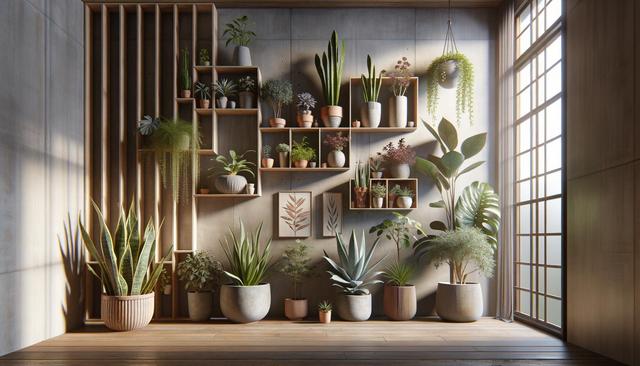Why Houseplants Matter for Mental Wellness
Indoor plants are more than just decorative items; they play a significant role in supporting mental health. Studies have shown that simply being around greenery can reduce stress, anxiety, and even symptoms of depression. The act of caring for a plant can offer a sense of routine and responsibility, which is especially beneficial for those feeling overwhelmed or isolated. In today’s fast-paced digital world, having a small piece of nature at home can provide a calming escape from screens and constant stimulation.
Many people find that tending to their houseplants gives them a mindful break. It encourages slowing down and being present in the moment. This form of passive meditation can help regulate emotions and improve overall mood. In workplaces, the presence of indoor plants has been linked to increased productivity and satisfaction, suggesting that their benefits extend beyond the home as well.
Improving Air Quality and Physical Health
Houseplants are often praised for their ability to purify indoor air. While it’s important to note that the air-cleaning effect of plants in a typical home setting may be modest, they do contribute to a healthier indoor environment. Plants like spider plants, peace lilies, and snake plants have been shown to remove certain toxins from the air in controlled studies. In addition, they contribute to increased humidity, which can be beneficial for respiratory health, especially during dry winter months.
Some of the physical health benefits of houseplants include:
- Reducing airborne dust and allergens
- Maintaining indoor humidity by releasing moisture
- Potentially lowering blood pressure by creating a calming atmosphere
While plants are not a substitute for proper ventilation or medical care, incorporating them into your home can be a helpful step toward creating a more health-conscious living space.
Top Houseplants for Mood Enhancement
Certain houseplants are particularly known for their calming effects or associations with positivity. Choosing the right ones can make a noticeable difference in your mood and emotional balance. Here are a few popular options:
- Lavender: Known for its soothing scent, which may reduce anxiety and improve sleep
- Aloe Vera: Offers both visual appeal and healing properties for skin irritations
- Jasmine: Its fragrance has been linked to improved mood and reduced stress levels
- English Ivy: A natural air purifier that’s also aesthetically pleasing
- Succulents: Low-maintenance and ideal for small spaces, often used to promote relaxation
These plants not only brighten up a room but also contribute to a more serene and balanced living environment. They are accessible in most garden centers and are suitable for both beginners and seasoned plant enthusiasts.
Creating a Plant-Friendly Indoor Environment
To fully enjoy the benefits of houseplants, it’s important to create an indoor environment where they can thrive. Factors such as lighting, temperature, and humidity play a crucial role in plant health. For example, some plants prefer bright, indirect sunlight while others do well in low-light conditions. Understanding your space and the needs of your plants will make your indoor garden more successful and sustainable.
Here are some tips to help you get started:
- Choose plants that suit your home’s lighting conditions
- Use appropriate pots with drainage holes to prevent root rot
- Water consistently, but avoid overwatering
- Dust the leaves occasionally to allow for better light absorption
- Group plants with similar requirements together
Creating a thriving plant setup doesn’t require a green thumb—just a bit of attention and care. The results can be highly rewarding, both visually and emotionally.
Incorporating Plants into Your Daily Routine
Once you’ve brought plants into your space, integrating them into your daily life can further enhance their mood-boosting effects. Start your morning by checking on your plants or watering them as needed. Use this time as a short moment of mindfulness or reflection. Incorporating plant care into your routine can help anchor your day and provide a sense of normalcy.
Additionally, consider placing your plants in areas where you spend the most time—such as your workspace, bedroom, or living room. This way, you benefit more directly from their presence. Some people also find joy in documenting their plant’s growth or progress through photos or journals, turning the experience into a creative outlet.
Whether you’re working from home, managing a busy household, or simply looking to enhance your surroundings, houseplants offer a small but meaningful way to support your mental and physical well-being.
Conclusion: Cultivating Wellness Through Houseplants
Houseplants are more than just interior decor; they are companions in your journey toward a healthier, more balanced lifestyle. From improving air quality to supporting emotional health, the benefits they offer are both subtle and powerful. Whether you’re new to plant care or already have a home full of greenery, there’s always room to grow—both literally and figuratively. By choosing the right plants and integrating them into your daily life, you create an environment that nurtures not only your space but also your well-being.







